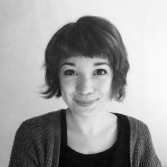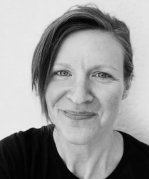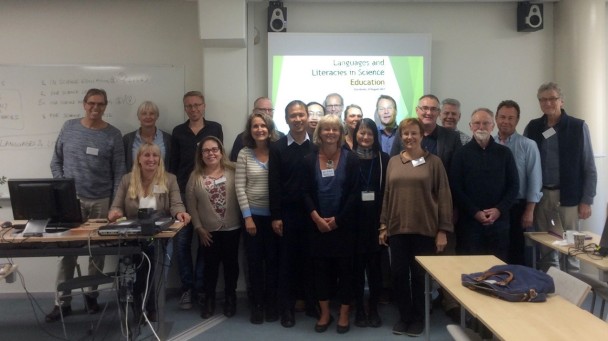About this SIG
This Special Interest Group serves as an international network linking researchers with an interest on how the languages of science (including non-verbal representations), and their associated literacies, afford, mediate, support or hinder science teaching and learning. The idea for this SIG was initiated following several symposia held during ESERA 2017 at Dublin and a follow up symposium at Stockholm on ‘Future Directions for Literacy Research in Science Education’ on 28 & 29 August 2017. Approved by the ESERA Board in March 2018, the SIG is open for all ESERA members to join and participate.
Reflecting a contemporary view of languages and literacies in the plural, the SIG examines 3 broad areas of research on language issues within science education: (a) the languages of students’ cultures and communities, including their local vernaculars, standardized national languages, and everyday terms and registers, (b) the languages of specific disciplines that have unique ontological, epistemological, linguistic and pedagogical characteristics and (c) the languages of multimodal representations consisting of speech, written words, images, symbols, graphs and gestures that are essential to scientific meaning making. Each of these cultural, disciplinary and representational languages requires a different set of literacy skills and instructions in order for students to become successful in science. As these 3 areas of language and literacy are overlapping and intertwined, there is an increasing convergence among researchers working together in this common space, which therefore calls for the necessity of this SIG.
Our Aims & Scope
The aims of the SIG are to:
- Establish and maintain a network of researchers in Europe and beyond with an interest in languages and literacies in science education
- Facilitate contact and collaboration among researchers working across institutions, countries and disciplinary areas
- Disseminate and discuss research findings and ongoing research through regular meetings and communications
- Disseminate and coordinate invitations and calls to joint symposia, seminars, conferences, special issues or book projects
- Support new and early researchers with a community of established and experienced scholars
The SIG is open to a range of theoretical perspectives and methodologies drawing from cognitive, linguistic, semiotic, sociocultural, anthropological, and pragmatist traditions. Besides science education researchers, the SIG includes and welcomes researchers from language and literacy education, applied linguistics and the learning sciences. The range of topics explored in the SIG includes, but is not limited to, the language of science, classroom discourse, representation, multimodality, disciplinary literacy, content and language integrated learning (CLIL), bi/multilingualism, reading/writing-to-learn, academic language, visual literacy, text/discourse analysis.
SIG Coordinators
Magdalena Kersting, University of Copenhagen
 Magdalena is a tenure-track assistant professor in science education at the Department of Science Education at the University of Copenhagen. Magdalena holds a PhD in Physics Education from the University of Oslo, an MSc in Mathematics and BSc’s in Physics and Mathematics from the University of Göttingen, and a Diploma in Public Relations from Freie Journalistenschule Berlin. In her research, Magdalena studies how learners experience abstract knowledge in digital and virtual learning environments in formal and informal learning contexts. She has a particular interest in embodied cognition and technology-enhanced science education. Together with the Education and Public Outreach team of OzGrav, the ARC Centre of Excellence for Gravitational Wave Discovery, Magdalena studies the benefits of using virtual reality in science education. Previously, Magdalena developed a digital learning environment about Einstein’s general theory of relativity in collaboration with the Norwegian Centre for Science Education.
Magdalena is a tenure-track assistant professor in science education at the Department of Science Education at the University of Copenhagen. Magdalena holds a PhD in Physics Education from the University of Oslo, an MSc in Mathematics and BSc’s in Physics and Mathematics from the University of Göttingen, and a Diploma in Public Relations from Freie Journalistenschule Berlin. In her research, Magdalena studies how learners experience abstract knowledge in digital and virtual learning environments in formal and informal learning contexts. She has a particular interest in embodied cognition and technology-enhanced science education. Together with the Education and Public Outreach team of OzGrav, the ARC Centre of Excellence for Gravitational Wave Discovery, Magdalena studies the benefits of using virtual reality in science education. Previously, Magdalena developed a digital learning environment about Einstein’s general theory of relativity in collaboration with the Norwegian Centre for Science Education.
Sara Wilmes, University of Luxembourg
 Sara is a research scientist at the University of Luxembourg. Through collaborative work with plurilingual teachers and students, Sara’s research seeks to support teacher education and professional learning for sustained changes in primary science education. Her interests center on exploring the use of critical research methodologies and embodied, multimodal lenses to explore intersections of literacy, science learning, sociolinguistics, and diverse communicative resource use in multilingual contexts among plurilingual learners and teachers. Most importantly, Sara seeks ways to honor and valorize voice and difference as resources in support of learning and growth.
Sara is a research scientist at the University of Luxembourg. Through collaborative work with plurilingual teachers and students, Sara’s research seeks to support teacher education and professional learning for sustained changes in primary science education. Her interests center on exploring the use of critical research methodologies and embodied, multimodal lenses to explore intersections of literacy, science learning, sociolinguistics, and diverse communicative resource use in multilingual contexts among plurilingual learners and teachers. Most importantly, Sara seeks ways to honor and valorize voice and difference as resources in support of learning and growth.
Founding Members

Founding Members of the SIG at the Stockholm Symposium on ‘Future Directions for Literacy Research in Science Education’
Founding Coordinators
Kok-Sing Tang, Curtin University
Kristina Danielsson, Linnaeus University
Founding Members
| Name | Institution & Country | |
| 1 | Airey, John | Stockholm University, Sweden |
| 2 | Amaral, Edenia | Federal Rural University of Pernambuco, Brazil |
| 3 | Amin, Tamer | American University of Beirut, Lebanon |
| 4 | Axelsson, Monica | Stockholm University, Sweden |
| 5 | Berg, Astrid | Linköping University, Sweden |
| 6 | Bergh Nestlog, Ewa | Linnaeus University, Sweden |
| 7 | BouJaoude, Saouma | American University of Beirut, Lebanon |
| 8 | Cavalcanti Neto, Ana Lucia | Secretary of Education in Escada, Brazil |
| 9 | Danielsson, Kristina | Linnaeus University, Sweden |
| 10 | Espinet, Mariona | Universitat Autònoma de Barcelona, Spain |
| 11 | Forey, Gail | Bath University, UK |
| 12 | Fredlund, Tobias | University of Oslo, Norway |
| 13 | Ge, Yun-Ping | National Changhua University of Education, Taiwan |
| 14 | Hand, Brian | University of Iowa, USA |
| 15 | He, Peichang | The University of Hong Kong, Hong Kong SAR |
| 16 | Ho, Caroline | Ministry of Education, Singapore |
| 17 | Hubber, Peter | Deakin University, Australia |
| 18 | Hultén, Magnus | Linköping University, Sweden |
| 19 | Jakobsson, Anders | Malmö University, Sweden |
| 20 | Jeppsson, Fredrik | Linköping University, Sweden |
| 21 | Knain, Erik | University of Oslo, Norway |
| 22 | Lai, Haiwen Karen | The University of Hong Kong, Hong Kong SAR |
| 23 | Larsson, Johanna | Uppsala University, Sweden |
| 24 | Lin, Angel | Simon Fraser University, Canada |
| 25 | Liu, Yu | Sichuan International Studies University, China |
| 26 | Lo, Yuen Yi | The University of Hong Kong, Hong Kong SAR |
| 27 | Löfgren, Ragnhild | Linköping University, Sweden |
| 28 | Markic, Silvija | University of Education Ludwigsburg, Germany |
| 29 | Martin, Sonya | Seoul National University, Korea |
| 30 | Martins, Isabel | Universidade Federal do Rio de Janeiro, Brazil |
| 31 | McClune, William | Queen’s University Belfast, UK |
| 32 | McDermott, Mark | University of Iowa, USA |
| 33 | Moje, Elizabeth | University of Michigan, USA |
| 34 | Mork, Sonja | Norwegian Centre for Science Education, Norway |
| 35 | Mortimer, Eduardo | Federal University of Minas Gerais, Brazil |
| 36 | Msimanga, Audrey | University of the Witwatersrand, South Africa |
| 37 | Olander, Clas | Malmö University, Sweden |
| 38 | Osborne, Jonathan | Stanford University, USA |
| 39 | Ødegaard, Marianne | University of Oslo, Norway |
| 40 | Pettersson, Alma | Linköping University, Sweden |
| 41 | Prain, Vaughan | Deakin University, Australia |
| 42 | Rappa, Natasha | Murdoch University, Australia |
| 43 | Rundgren, Carl-Johan | Stockholm University, Sweden |
| 44 | Seah, Lay Hoon | Nanyang Technological University, Singapore |
| 45 | Siry, Christina | University of Luxembourg, Luxembourg |
| 46 | Tang, Kok-Sing | Curtin University, Australia |
| 47 | Tippett, Christine | University of Ottawa, Canada |
| 48 | Toth, Jeanette | Stockholm University, Sweden |
| 49 | Tytler, Russell | Deakin University, Australia |
| 50 | Uddling, Jenny | Stockholm University, Sweden |
| 51 | Unsworth, Len | Australian Catholic University, Australia |
| 52 | Yore, Larry | University of Victoria, Canada |


Such a constellation that is the founding group of the Language in Science Education SIG. Most names that matter are listed. I hope to join the group and be active.
Samuel Ouma Oyoo author of two relevant articles in RISE)
LikeLike
Hi Samuel,
Thanks for visiting our website. We look forward to have you joining us, and if you are coming to ESERA this year or subsequent years, we will meet up during the SIG meetings.
LikeLike
Hello, I am Phoebe Siu from Hong Kong, a doctoral candidate at the Faculty of Education, The University of Hong Kong. I am also a full-time lecturer working at College of Professional and Continuing Education, The Hong Kong Polytechnic University. I am interested in research scopes mapped with CLIL, EMI, Translanguaging and Trans-semiotizing, Language across the Curriculum supporting Science and Social Science literacy and education. The research methodologies I adopted in my current and previous research projects are mainly qualitative design-based research, using nexus analysis, case studies, ethnographical studies and narrative inquiry.
Prof. Angel Lin recommended me to join this SIG to learn more from languages and literacies in Science Education. I clicked the join button but the page of the centralized website didn’t work for me to follow up my registration to SIG6.
May I seek help from you here to join SIG6 to learn more in 2022? I am reading Dr Kok-sing Tang’s newly published paper in 2022 about social-materiality. I would like to join the coming Zoom meeting presentation to listen to his oral presentation and see how it may support my future collaborative projects with Science specialists at my college for EMI higher education in Hong Kong.
LikeLike